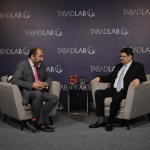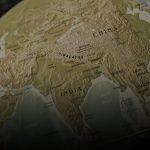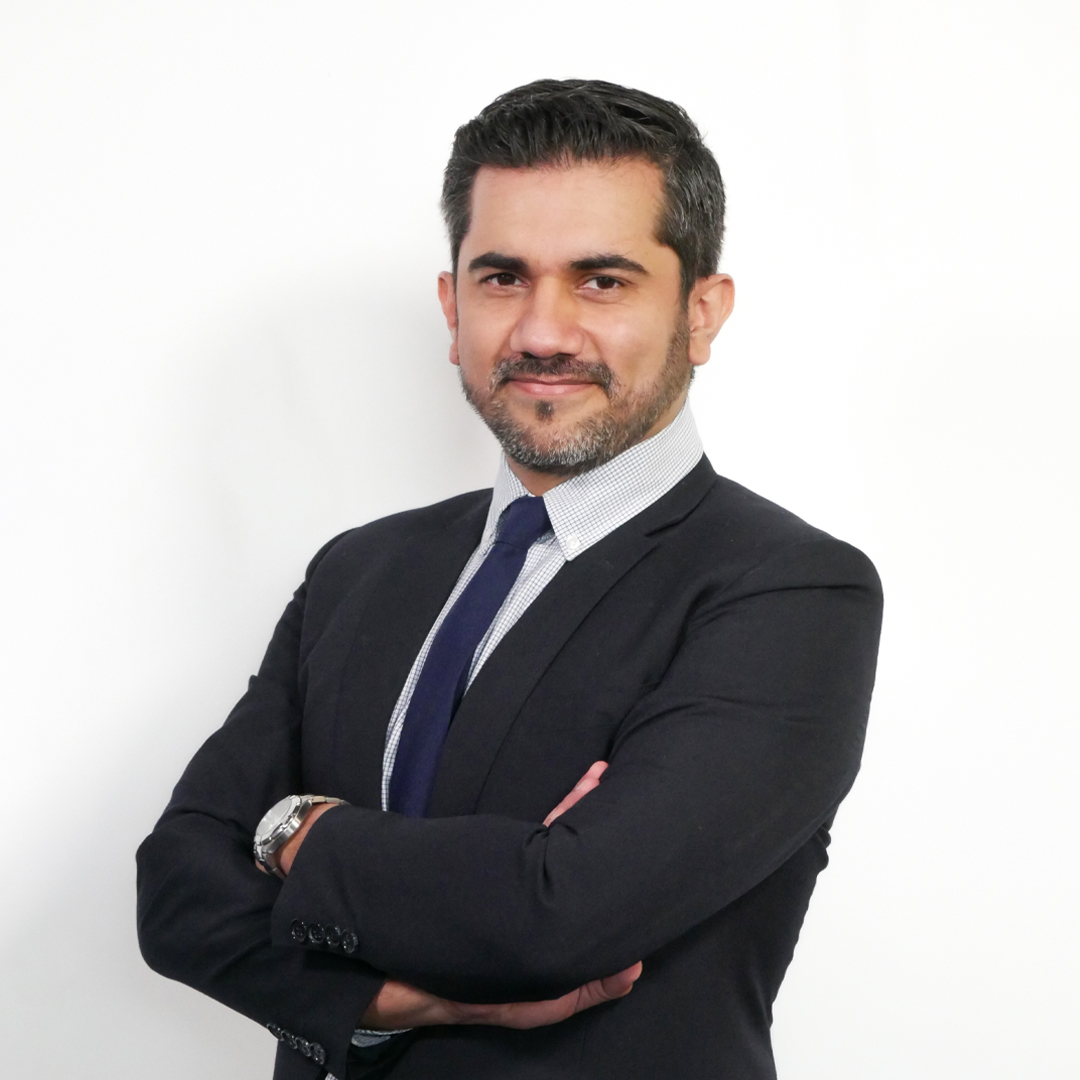You can download the e-reader friendly version here.
A Peace Process for the People?
How can the ongoing peace agreement move beyond power-sharing to being inclusive for everyone in Afghanistan, particularly women? How can we ensure that Afghan women are also equal stakeholders in the “Afghan-led and Afghan-owned” peace process? Tabadlab and Jinnah Institute curated an eminent panel to unpack the complexities of inclusion amid rising tension in the region.
Featured Panelists:
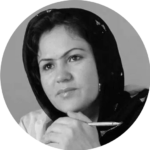 Fawzia Koofi is an Afghan lawmaker and women’s rights activist. She is currently serving as the Vice President of the National Assembly.
Fawzia Koofi is an Afghan lawmaker and women’s rights activist. She is currently serving as the Vice President of the National Assembly.
 Laurel Miller is the Director of Asia Program at International Crisis Group. She leads the organisation’s research and policy advocacy in the region.
Laurel Miller is the Director of Asia Program at International Crisis Group. She leads the organisation’s research and policy advocacy in the region.
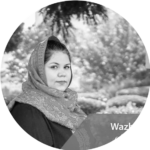 Wazhma Frogh is an Afghan Women’s Rights Activist. She founded the Research Institute for Women Peace & Security
Wazhma Frogh is an Afghan Women’s Rights Activist. She founded the Research Institute for Women Peace & Security
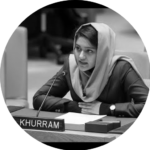 Aisha Khurram, a law student from Kabul University, is Afghanistan’s 2019 Youth Representative to the United Nations.
Aisha Khurram, a law student from Kabul University, is Afghanistan’s 2019 Youth Representative to the United Nations.
 Ammara Durrani is a Senior Research Fellow, at Jinnah Institute and a UNDP Senior Adviser for Pakistan
Ammara Durrani is a Senior Research Fellow, at Jinnah Institute and a UNDP Senior Adviser for Pakistan
Key Issues
Women as Key Stakeholders
Are we heading towards a more structured and specified role of women in the negotiations? Our panel of experts emphasised on the role of women and found common ground in the need to humanise the process by keeping people as the prime focus, particularly women. The positions that are occupied by Afghan women today on the negotiating table as well as in government were not handed to them on a platter. They have struggled for years and have overcome many hardships to reach this status; many entered this process even before the U.S started discussions. It is necessary to keep women centre stage in the peace process, as they represent the image of a transformed Afghanistan, to the Taliban as well as others. Women have also invested both energy and resources to work towards community-based peacebuilding. The dialogue will feature their voices enabling them to become stakeholders in determining the sort of peace the Afghan people want.
Role of the United States
The panellists argued that the U.S. is not brokering peace as a neutral entity. Instead, they are a party to the conflict. Washington has always looked to pursue its own interests in this conflict and will continue to do this in the agreement as well. Contrary to common expectations, the U.S. will not be the protector and advocate for women’s and minority rights, it will not be setting the parameters for the substance of the peace process. U.S. interests are quite clear – withdrawal of its forces and curbing the rise of extremism – since they made the deal in February with the Taliban, which didn’t include the Afghan government.
Weaknesses of the Peace Process
Will the current top-down political process guarantee sustainable peace? Our panellists argued that this is not enough, since there is community-based conflict in Afghanistan. Social reconciliation is left wanting in this process; connecting with required peace processes at local and grassroots level needs to be prioritised. Afghanistan has its internal challenges, which include grievances at community levels, and there hasn’t been much focus on the roots of conflict as a whole. The U.S.-Taliban deal doesn’t consider the relationship with Afghanistan’s neighbours, or the aftermath of the deal. Our panel of experts argued that the reason behind this approach is because of the U.S.’ haste to pull out of Afghanistan, pushing the Taliban and Kabul to reach a settlement as soon as possible. This process will be nothing but a piece of paper and lip service to the Afghan people, which may lead to another conflict within the state. To be substantive, the peace process should start at the grassroots level by tackling the deep-seated grievances. The panellists stressed that a neutral third-party is needed to make peace last; to play the role of a mediator or facilitator, monitor its implementation, and make sure that all parties are abiding by the rules and regulations identified in the intra-Afghan dialogue.
Preserving Modern and Young Afghanistan
Two-thirds of the Afghan population is close to the age of 25, and they will be the ones who will be living with what comes through the peace process. Since the early 2000s, women and minority groups have been given additional rights through legislation, modernising Afghanistan to an extent. How can that progress be preserved? Our panellists observed that the socio-economic spectrum must be broadened. Young people should be included in the peace process, especially those affected by war and those who have been part of the change in Afghanistan. Frustrated with the conflict, they want ownership in the peace process. A lot of young Afghans are ready to accept the Taliban back into society under the Afghan constitution, provided they accept this ‘new Afghanistan’. It is feared that the Taliban will not. The Taliban youth and non-Taliban Afghan youth need reconciliation as they will be the ones living in the result of this process.
Islamic Republic vs. Islamic Emirate
The Taliban imposed a strict Islamic Emirate during their time in power. Now an Islamic Republic, there is major debate on whether the Taliban will compromise and accept an Afghanistan with a Republic instead of an Emirate. The panel observed that there is not enough clarity on this subject. The Afghans are willing to introduce a power-sharing agreement between the two parties, which will guarantee the survival of the Islamic Republic. Public opinion suggests that this compromise is only possible with the inclusion of Taliban in society, but they are not willing to compromise the struggle for an Islamic Emirate. The panel argued that even if the process is inclusive, the Emirate model will ensure that it is not productive. For Afghan voices to resist a reversal, the international community will need to offer support. It is clearly understood that if Afghanistan becomes an Emirate, escalation of violence is very likely, and this is something that is not being communicated to the Taliban. They see themselves as the ‘winners’ of the war, with complete international support. However, this ‘legitimacy’ of the Taliban doesn’t exist in Afghan society.
Role of Neighbours and External Stakeholders
With the U.S on its way out, since the intra-Afghan dialogue is between the current Afghan government and the Taliban, what role should Afghanistan’s neighbours and external stakeholders play? The international community should support the process by advocating for inclusivity, providing leverage to marginalised groups, and keeping an eye on the implementation of the peace process and the Taliban for abiding by the agreement. Our panellists emphasised that the international community, and particularly Pakistan, can work towards an inclusive and sustainable Afghan peace process. They argued that it is the most important external actor in the process, and good relations between Kabul and Islamabad can eventually lead to peace in Afghanistan. A peaceful Afghanistan will benefit Pakistan and the rest of the region not just politically, but economically as well, since it will open doors for trade with Central Asia and beyond. The first recommended step to improve relations is to begin people-to-people dialogues between civil societies – especially women, youth, parliamentarians and media – on both sides of the border, which can humanise and demilitarise this relationship, and make it really about the ‘people’.
Recommendations
- Recognise the role of women as central to the success of the peace process.
- Ensure that the Intra-Afghan negotiations are inclusive and representative for all population segments, including youth and marginalised groups.
- Start reconciliation processes at grassroots level for sustainable peace.
- Nominate a neutral third-party facilitator and mediator to monitor the peace process.
- Regional neighbours, mainly Pakistan, should collaborate to stop the rise of extremist groups like Daesh, and create urgent impetus for civilian agency and people-to-people initiatives to humanise and demilitarise bilateral relations.
- Increase focus on education as a tool for reconciliation and to fight extremism.
Key Resources:
Header image by ResoluteSupportMedia via Flickr
A Resident Fellow and Head of Growth at Tabadlab.


